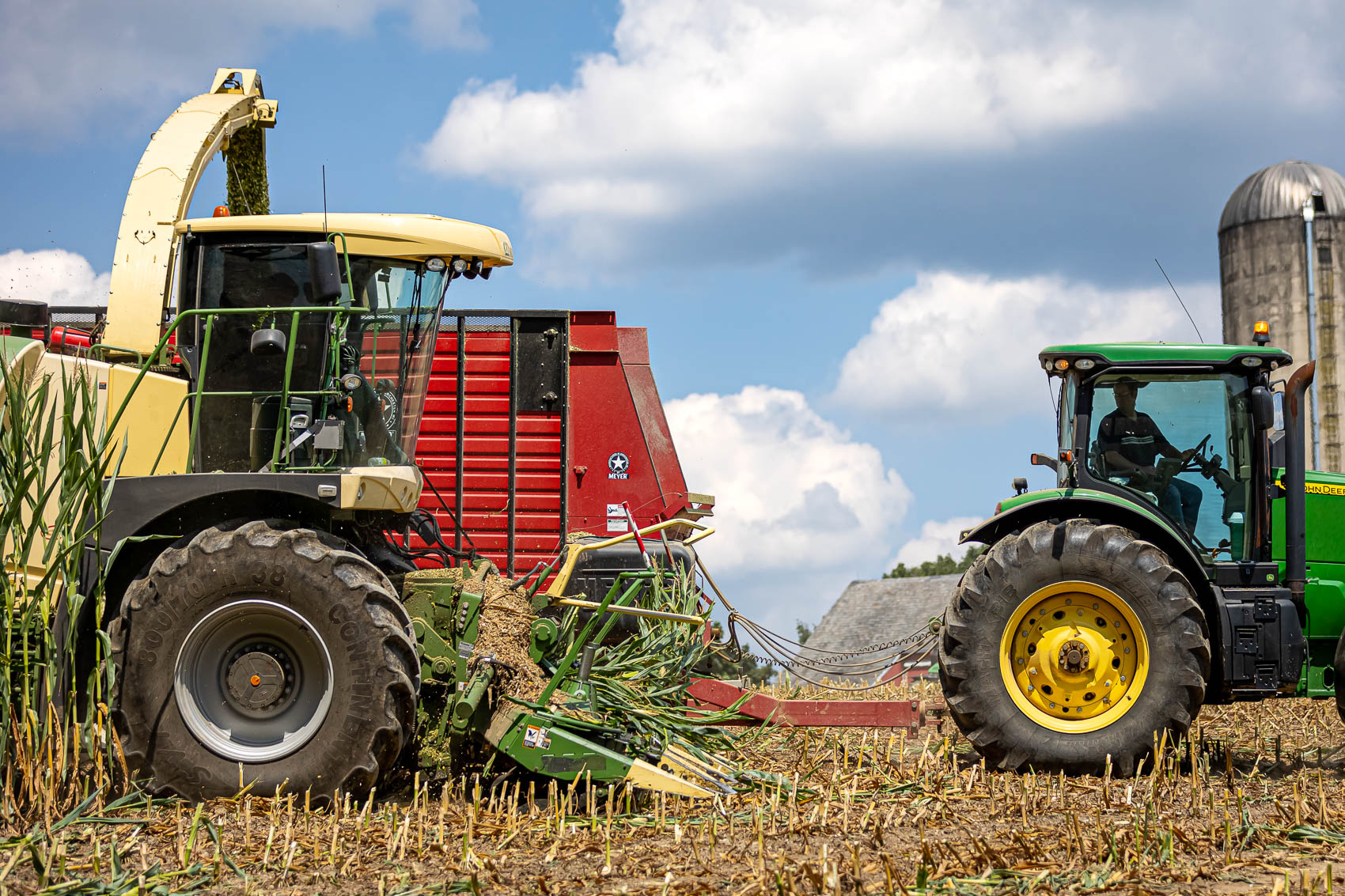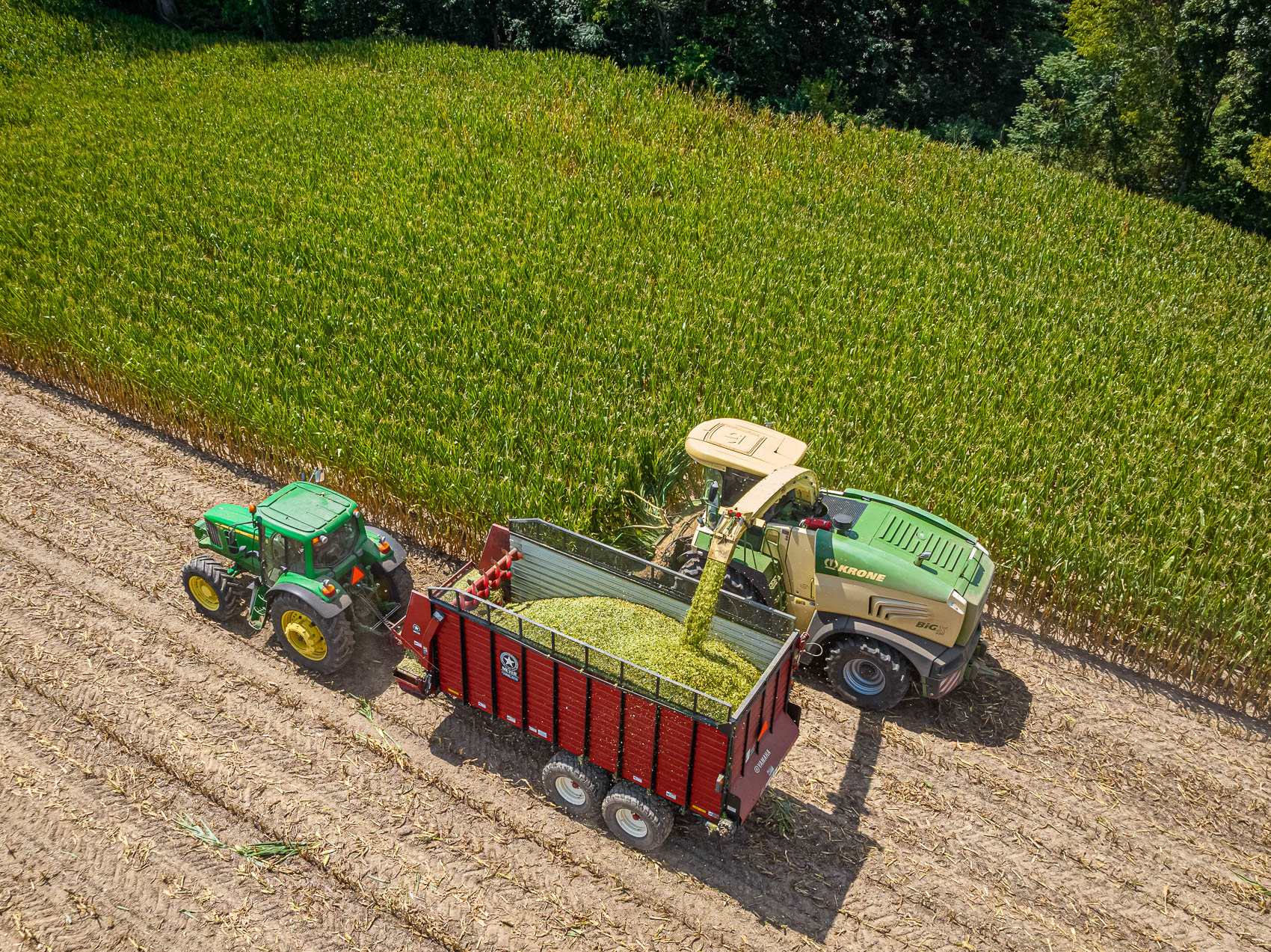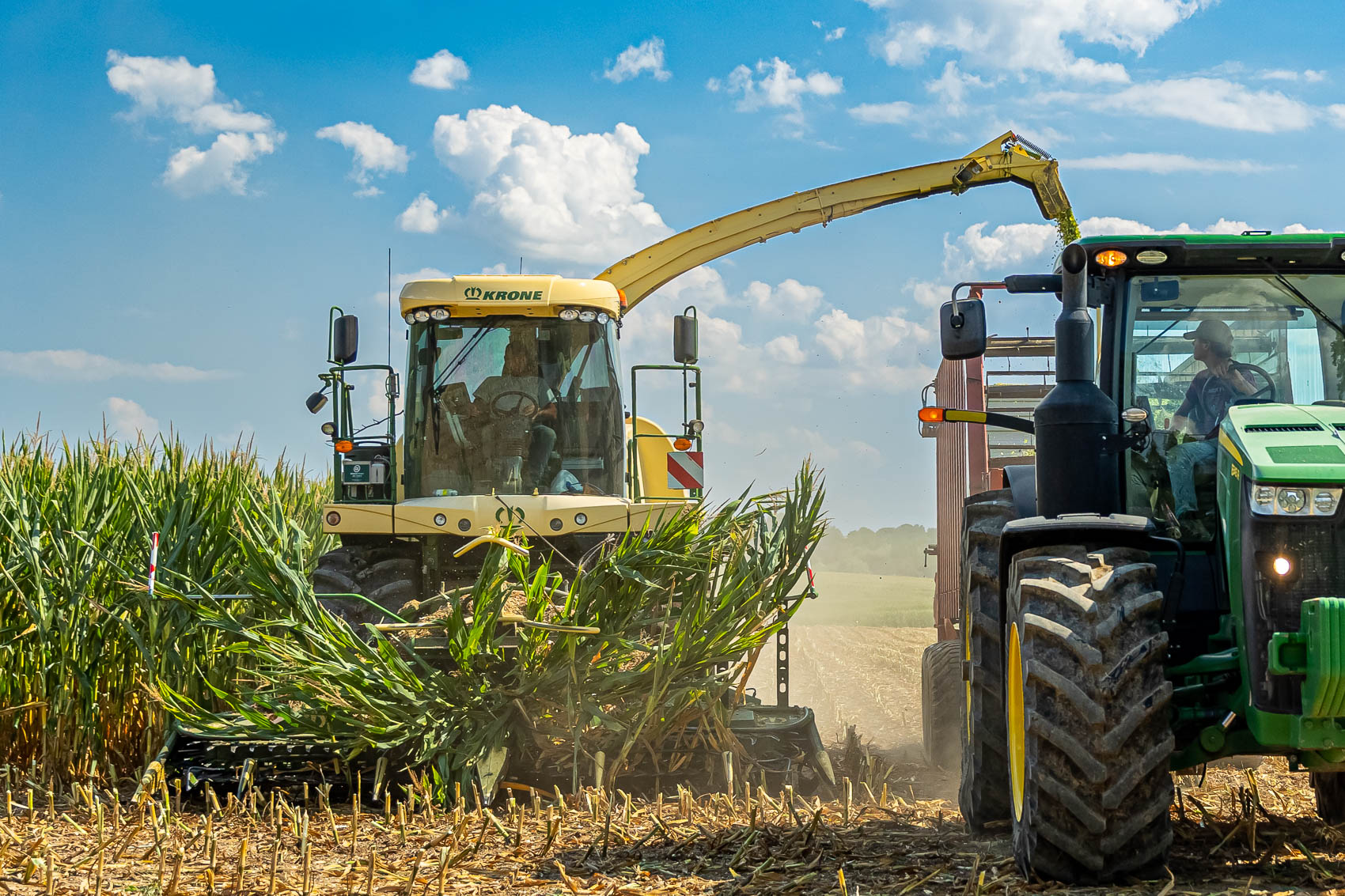What wears or damages processor rolls?

Foreign objects
Having the rolls close together is essential for satisfactory processing, but it also means that even tiny objects can damage the rolls–things like stones and pieces of metal that are picked up from the field or that have fallen off the machine.
Some of the interesting objects that have gone through processors are:
- Wrecking bar that was hanging on a harvester
- Hitch pin hung on a stalk
- Sledgehammer
- And a lot of other stuff. . .
So keep track of that hammer or wrench!

Speed differential
The speed differential between the two rolls will affect how quickly they wear; however, to achieve higher KP scores, you need higher speed differentials.
Generally, the higher the differential, the shorter the roll life. But if feed efficiency is calculated by milk gain for dairy cattle or conversion rate for beef, the replacement cost is far outweighed by profitability gain.
Crop residue
Crop residuals build up inside the processor at times and become dry and hard. There have been incidents where this has created excessive roll wear from the friction. If you pull shields off yearly right after harvest and clean out the buildup, this will generally help. On models having a scraper, make sure they are adjusted as tight as possible.

Sandy soil
A big variable is sandy and light soils. Wind, rain, or irrigation carries the dust onto stalks, and this is something that can’t be avoided. It’s a geographical problem that is common in drier climates.
Rust
Rust. Seemingly it shouldn’t make a big difference, but it does. Chrome-plated rolls are not as susceptible to rusting as heat-treated-only models. Take a few hours to pop off the shields and wash all the silage juice off. When you’re done, get some old oil and coat the rolls well. We have also seen farmers putting some paint on. It doesn’t matter what you use, as long as it's something that keeps the rolls from rusting. While you’re in there, you will want to grease or oil the bearings after washing to push out any water.
The main thing to keep in mind: A little preventive maintenance goes a long way in the heat of harvest. Treat your equipment well, and it will serve you well.
If you think you may be getting close to needing a replacement, but you aren't sure if you can get just enough life from your rolls to finish a season, please contact your local Horning dealer. We'll be glad to help you make a good decision.